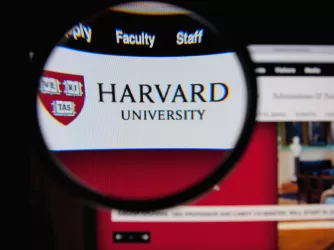Table of Contents
Virginia Postrel on Misguided Support for Free Speech Zones

FIRE’s new Stand Up For Speech Litigation Project has received a lot of attention since it was launched on July 1—much of it from free speech advocates who recognize the need for court cases aimed at striking down campus speech codes. Today, Bloomberg View columnist and FIRE Board of Directors member Virginia Postrel writes to address remarks from some skeptics of the project, including those who advocate for free speech zones.
Postrel explains how Citrus College, now defending its free speech zone in court for a second time, confines “expressive activities” to a mere 1.34 percent of the campus and censored student Vincenzo Sinapi-Riddle as he was gathering signatures for a petition on spying by the National Security Agency. She writes:
[J]udging from some of the public response to the Citrus College case, a lot of people think that’s just fine. Debating national security issues, they seem to think, has no place at state colleges.
“The creation of the free-speech zones, and the enforcement of sound-level ordinances, was not to prevent free speech, but give religious or political speech a time, place, and manner that would allow speakers to address their messages to audiences on campuses without disrupting the other fundamental functions of the institutions,” wrote a retired physics professor commenting on a Chronicle of Higher Education report.
In her column, Postrel adeptly explains in both legal and moral terms why these arguments fail. First, public university campuses are a public forum, meaning that time, place, and manner restrictions must be content-neutral and reasonable. The retired physics professor’s suggestion that there be restrictions on “religious or political speech” is plainly not content-neutral, and shutting down free expression throughout 98 percent of the campus is far from “reasonable.” As Eugene Volokh, law professor at the University of California, Los Angeles School of Law and lead blogger at The Volokh Conspiracy, commented, “[FIRE is] probably going to succeed … because the case law is generally on their side.”
Second, and just as compellingly, Postrel explains how free speech zones are more disruptive to learning than the speech that universities seek to restrict:
Contrary to what many people seem to think, higher education doesn’t exist to hand out job credentials to everyone who follows a clearly outlined set of rules. (Will this be on the exam? Do I have to come to class?) Education isn’t a matter of sitting students down and dumping pre-digested information into their heads.
Higher education exists to advance and transmit knowledge, and learning requires disagreement and argument. Even the most vocational curriculum -- accounting, physical therapy, civil engineering, graphic design -- represents knowledge accumulated through trial and error, experimentation and criticism. That open-ended process isn’t easy and it often isn’t comfortable. The idea that students should be protected from disagreeable ideas is a profoundly anti-educational concept.
Postrel is exactly right. Teaching of facts has its place in many university classes, but that is only a small part of the purpose of a university. The sharing of new ideas and unfettered debate that happens on a free campus is not a bonus accorded to some lucky students, but rather a central feature of the public university, which the Supreme Court has characterized as the “marketplace of ideas.”
Read the rest of Postrel’s timely column at Bloomberg View.
Recent Articles
FIRE’s award-winning Newsdesk covers the free speech news you need to stay informed.

Revoking Harvard’s tax-exempt status will threaten all nonprofits

Grandpa’s advice for the new wave of American censors

FIRE POLL: Only 1/4 of Americans support deporting foreigners for pro-Palestinian views
